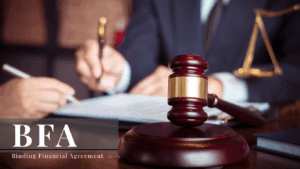Even after a firm handshake or a ‘gentleman’s agreement’ starting out with the very best of intentions, over time, disputes can and do regularly occur. A recent case in the District Court involved a party claiming they were owed more money than was agreed upon during mediation – all because the agreement was never written down! This decision could have cost hundreds of thousands, if it wasn’t for trustworthy evidence given by a witness.

Two men, Ahmed and Ziad, decided to start two separate restaurants together in Liverpool – a Lebanese restaurant and a Thai restaurant. Though both men were to split equally the profits, Ahmed paid the majority of the set-up costs. Ziad would, in return, run the Lebanese restaurant. This agreement was never written down.
After the restaurants had both opened, Ziad still had not paid his share of the set-up costs, and disputes arose concerning supply and labour costs. To prevent their relationship deteriorating further, they decided to see a Sheikh to settle their differences by mediation.
The Sheikh conducted the mediation by engaging separately with both parties. Eventually, an agreement was reached – Ziad would pay Ahmed $800,000. The two men hugged each other as a cultural sign that an agreement was made – though nothing was ever written down.
However, several months later – when the agreed payment was lower than Ahmed expected – Ziad claimed that the had agreed to pay Ahmed only $130,000!
The matter went to court, upon which the judge relied strongly upon the evidence given by the Sheikh himself of the meetings. The Sheikh stated that the claim made by Ziad was a “straight-out lie.” Ziad’s evidence was unclear and vague, and he could not provide details of the conversation that led to the agreement of $130,000.
The judge awarded the amount of $800,000 sought by Ahmed (less the $130,000 already paid and a loan to the mosque), with interest of approximately $84,000.
The Importance of Written Agreements
No matter the circumstances, it is always best to get any agreements made in writing.
Whilst these agreements should ideally be drafted by a solicitor to sufficiently cover the terms of the agreement (and your Streeterlaw Solicitors are willing to assist you where needed), an informal document signed by all parties may still suffice as evidence of the agreement. Cultural customs indicative of agreement may not be enough to enforce an agreement.
As a general rule, an agreement should include as a minimum:
- The name of each party;
- The terms of the agreement (who gets what);
- The date of the agreement; and
- A witness to the agreement.
The Importance of Witness Evidence
If you have entered into an agreement without ensuring it has been written down, then you may be able to enforce the terms of the agreement through the evidence provided by a witness. In this case, the evidence given by the Sheikh was what ensured the agreement was enforced.
It is essential that a witness in these circumstances is precise and exact in recalling events and can remember clearly what happened.
Of course, if the witness does not recall the events clearly, you should never encourage the witness to “remember” the events differently.
If you’re contemplating entering into a business agreement (or even if you’ve already entered into a verbal agreement), contact your team of Solicitors at Streeterlaw on 02 8197 0105 to get advice on the best way to ensure that your rights are protected.











